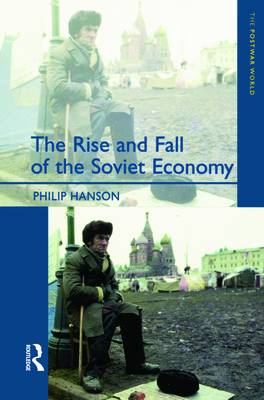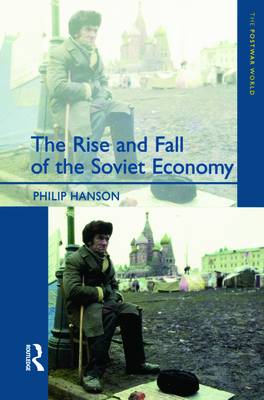
- Afhalen na 1 uur in een winkel met voorraad
- Gratis thuislevering in België vanaf € 30
- Ruim aanbod met 7 miljoen producten
- Afhalen na 1 uur in een winkel met voorraad
- Gratis thuislevering in België vanaf € 30
- Ruim aanbod met 7 miljoen producten
Zoeken
The Rise and Fall of the The Soviet Economy
An Economic History of the USSR 1945 - 1991
Philip Hanson
€ 112,95
+ 225 punten
Uitvoering
Omschrijving
This new textbook draws on personal experience and literary sources, including memoirs, as well as available economic data and analyses, to illustrate the reality of everyday life and of economic policy making in the post-war Soviet Union. The author argues that the Soviet economic system was capable of producing economic growth, and did for most of its existence exhibit growth. But it revealed over a time a key weakness compared with capitalism: a systemic inability to cope well with technological change, which doomed the Soviet economy in the long-run. Moreover, 'success' in partially liberalising Soviet society, so that terror receded into the background, reduced the effectiveness of a top-downeconomic system that relied on authority and obedience. Of major interest to courses on the Soviet experience in departments of history, politics and economics
Specificaties
Betrokkenen
- Auteur(s):
- Uitgeverij:
Inhoud
- Aantal bladzijden:
- 292
- Taal:
- Engels
- Reeks:
Eigenschappen
- Productcode (EAN):
- 9780582299580
- Verschijningsdatum:
- 23/01/2003
- Uitvoering:
- Paperback
- Formaat:
- Trade paperback (VS)
- Afmetingen:
- 160 mm x 233 mm
- Gewicht:
- 449 g

Alleen bij Standaard Boekhandel
+ 225 punten op je klantenkaart van Standaard Boekhandel
Beoordelingen
We publiceren alleen reviews die voldoen aan de voorwaarden voor reviews. Bekijk onze voorwaarden voor reviews.







